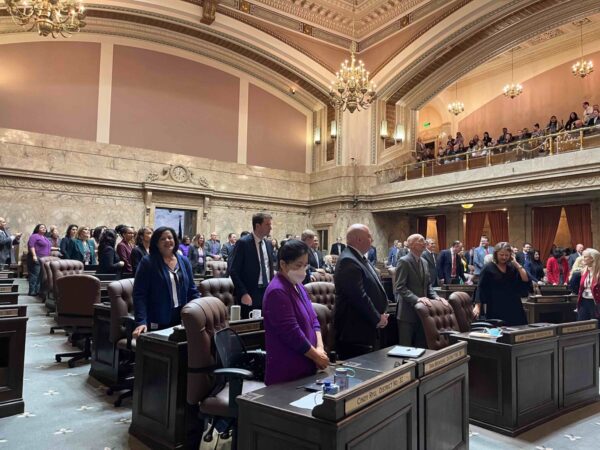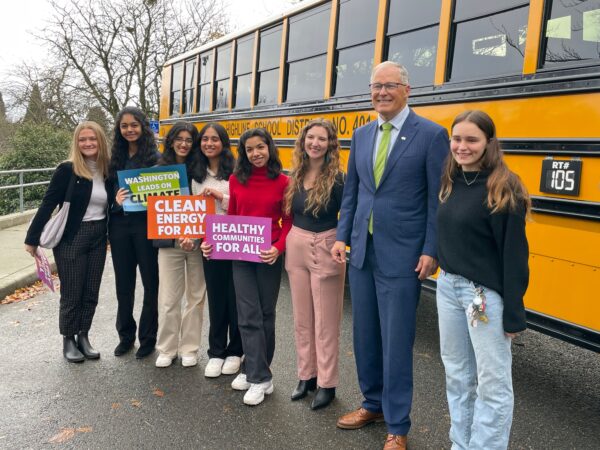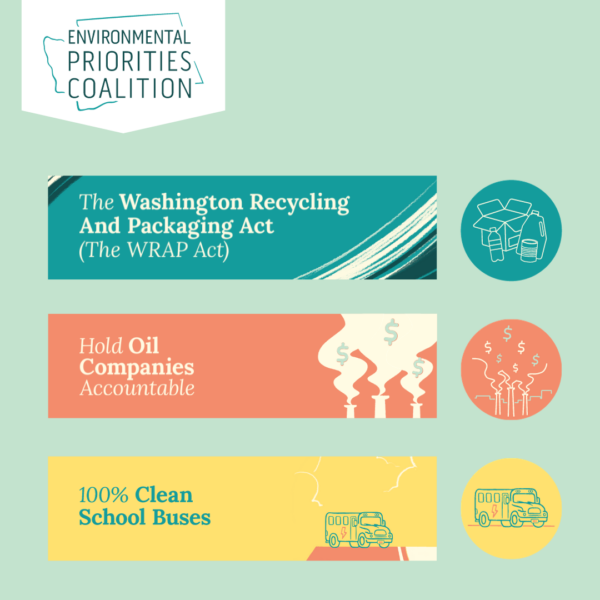“This session we were committed to considering the needs of industry and local governments in this tough economy while also ensuring we didn’t step back our commitment to clean energy and a healthy environment,” said Clifford Traisman, state lobbyist for Washington Environmental Council and Washington Conservation Voters.
Pollution-Free Prosperity
At the beginning of the 2012 Legislative Session, there were over 75 bills that threatened to undo the laws that protect Washington’s environment. Despite significant pressure from industry groups that sought to create a false choice between a healthy environment and strong economy, no significant rollbacks were enacted. Our state’s environmental protections were maintained due to the efforts of legislative champions and significant grassroots pressure from people across Washington.
The one bill that reflected the compromises struck this session was SB 6406. It began as an attack on several core environmental laws, including the Growth Management Act, but evolved, due to unprecedented grassroots pressure, to a much more limited bill that updates forestry practice regulations, hydraulic permits and the State Environmental Policy Act, and establishes a schedule for the implementation of certain clean water protections.
“We faced unenviable odds at the beginning of session – there were a lot of bills that could have done some damage,” said Mo McBroom, policy director for Washington Environmental Council. “What saved environmental protections is that people in Washington truly value them and the benefits they bring to our state – from our quality of life to public health. People spoke up loud and clear and their voices made the difference.”
In addition to policy debates, the legislative conversation was dominated by challenging budget choices. Unlike in recent years where funding for environmental protection has taken a disproportionate hit, the Legislature refrained from draconian cuts to core environmental programs and funded $38 million for polluted stormwater infrastructure projects in the Capital Budget.
Fulfill Our Clean Energy Initiative
After fighting off multiple bills that would have significantly undercut progress toward a clean energy future, the focus was on two bills: Senate Bills 6414 and 5575.
The environmental community joined with utilities in support of SB 6414, which gives public utilities a process to determine whether a proposed renewable energy or energy efficiency project is eligible to count toward I-937’s targets. Previously, projects had to be completed before eligibility could be determined.
Clean energy and environmental groups negotiated with industry leaders to narrow the scope of SB 5575, which brings additional kinds of biomass to the list of eligible renewables and grandfathers in some existing biomass plants. The legislation will result in fewer new renewable energy investments and fewer new clean energy jobs.
“The environmental community will keep working to deliver the economic and environmental benefits of the Clean Energy Initiative to the people who live and work in Washington,” said NW Energy Coalition policy director Nancy Hirsh.
Toxic-Free Kids Act
Even with the support of more than 45 health, community and environmental organizations, the Senate ultimately failed to pass the Toxic-Free Kids Act (EHB 2821) before the end of special session. The bill would have banned two cancer-causing flame retardants – TCEP and chlorinated Tris – in children’s products.
TCEP and chlorinated Tris, have been detected in children’s items made of polyurethane foam, including car seats and changing table pads. One of the flame retardants, chlorinated Tris, was recently found in 80 percent of children’s products tested.
Ivy Sager-Rosenthal, Campaign Director for the Washington Toxics Coalition said “The Senate’s inaction on this bill means children will continue to sit and lay on cancer-causing toxic flame retardants for another year. Children’s health is the loser today and the makers of these chemicals and their allies can continue to poison our homes.”



